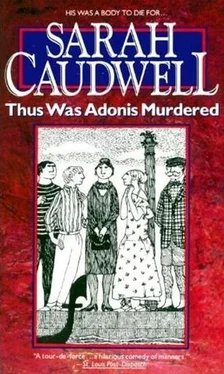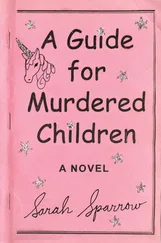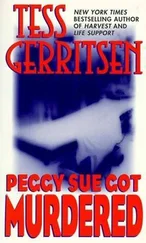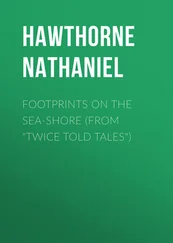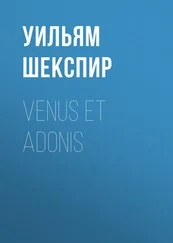I was going to Venice to help Julia, I guess his reaction might be somewhat negative. So I figured I’d just leave a note saying my mother’s cousin Alice was very sick and I had to go to her. My mother’s cousin Alice is very into ecology and she lives in a farmhouse in Brittany, France, and doesn’t have a telephone.” She looked round anxiously, as if this proposed deception might incur censure. It did not.
“I say, Hilary,” said Cantrip, when she’d gone, “you aren’t having another of your loopy spells, are you? You’re sure it’ll do some good sending the poor grummit back to Venice?”
“No,” I answered, too preoccupied to take offence at the form of the question. “No, Cantrip, not entirely sure. I am assuming, you see, a fact for which there is no direct evidence.”
“Hilary,” said Ragwort, “do you mean to say that you have persuaded this girl, whom we hardly know, to deceive her husband and travel halfway across Europe merely on the basis—”
“My dear Ragwort,” I said, “I do wish you wouldn’t fuss. I am quite reasonably sure. To be entirely sure, however, I should need a further piece of information, and the only person from whom I might obtain it is Kenneth Dunfermline. I’d really prefer to avoid seeing him — it seems likely, in the circumstances, to be a depressing interview. Still, as you say, Ragwort, it would be irresponsible — would you be kind enough to come with me?”
Murmuring of wild geese and mare’s nests, Ragwort nonetheless consented.
“I am, of course, delighted,” said Selena, standing beside us on the pavement outside the Corkscrew as we waited for a taxi, “to know that you have a theory, Hilary. Does there happen, by any chance, to be the smallest scrap of evidence for it?”
“Oh yes,” I said. “Yes, the evidence is almost conclusive. There is one point, you see, on which I agree with Julia — I attach great importance to the signs of nervousness displayed by Ned Watson on the morning of the murder.”
Kentish Town, though not far from my temporary home in Islington, is an area of London with which I am unfamiliar. The driver of our taxi, however, found the street without difficulty. It was a terrace of small Georgian houses — a little shabby, but nice enough. Or not, perhaps, quite nice enough for a young man of such delicate tastes as Ned.
“Sure you’ve got the right number?” said the taxi driver, turning to address us through the glass partition. “This one looks as if they’re all away.” The house did have, certainly, an unoccupied appearance: on a golden afternoon, the windows were blank with shutters. “Or as if someone had died.”
“Yes,” I said, “I think it’s the right place.”
My first ring at the doorbell brought no answer. After a minute or so, I rang again.
“He’s not there,” said Ragwort.
But the door did open. Framed between the doorposts, Kenneth Dunfermline looked large enough to carry them, lintel and all, like a yoke across his shoulders. He had evidently been working, for he was naked to the waist: I perceived that his bulk was not due to any surplus of flesh but to the massive development of his chest and the powerful muscles of his shoulders and upper arms. Not Julia’s sort of thing, certainly; but to any taste less morbidly aesthetic he might have seemed a rather magnificent figure, had it not been for the drab pallor of his skin — whatever occasions there had been that summer for sunbathing, Kenneth Dunfermline had not taken them. And his face — I would have thought, looking at his face, though I understand such a thing to be physiologically impossible, that in the five days since we had seen him he had not slept at all.
He stood looking from one to the other of us under the continuous line of his thick black eyebrows, as though dazed, like a bull sent suddenly from darkness into the harsh sunlight of the arena.
“Mr. Dunfermline?” I said.
“Yes,” he answered, as if doubtful about it.
“I really must apologize,” I said, “for intruding on you without warning like this. I have only a short time in London and I was most anxious to meet you. I saw some of your work at Frostfield’s Gallery and Mrs. Frostfield was good enough to give me your address. I simply came round on impulse — it’s quite unforgivable, I’m really very sorry.”
“Not at all,” said the sculptor, vaguely, as if it were a phrase learned by rote as the appropriate response to an apology, but repeated without confidence that it was right. “It doesn’t matter.”
“My name, by the way, is Hilary Tamar. Professor Hilary Tamar, of St. George’s College, Oxford. This is my friend Desmond Ragwort, of Lincoln’s Inn.”
“You’d better come in,” said Kenneth. It sounded less grudging than the words might suggest: he knew, it seemed, that there was something he was supposed to do about people standing on the doorstep, but could not with certainty remember what it was.
We followed him through a little entrance hall and into his studio. Running the width of the house, it had windows at the back as well as the front; but those at the back were also shuttered. It was lit by fluorescent tubes, which hung by chains from the ceiling. The walls, never papered and for some years not whitewashed, had darkened to the colour of putty, the ceiling and woodwork to a similar but deeper shade. The floorboards were unpolished and uncarpeted.
The film of whitish dust which lay over everything and the diversity of the objects which the room contained — stacks of clay, coils of copper wire, bottles of turpentine — obscured, at first impression, its extraordinary tidiness; but after a moment or two one perceived that the tools and materials of the sculptor’s craft had been arranged in meticulous order on the rows of metal shelving which covered most of the wall space — he would not be delayed in his work by any difficulty in finding the right chisel.
There was no decoration. Even the photographs which covered one section of wall — some close-up studies of the hand, a series of still shots of a young man diving — seemed intended rather as aides-memoires to the structure of the human body. There was a set of landscape photographs — views from various angles of a place surrounded by olive trees — which served, at first sight, no utilitarian purpose. Looking, however, at the trestle table in the middle of the room, I saw laid out on it a model of the same scene, but with the addition of a fountain, its waters represented by blue polystyrene. I concluded that the landscapes also were intended to assist work in progress.
At least there was somewhere to sit — the studio couch near the front window had presumably been provided for the benefit of any live model whom the sculptor might have to employ. Upholstered in dark red velvet, it had been covered over with an old blanket — perhaps to protect it from the dust, but more probably, I thought, because Kenneth was irked by the intrusion of the splash of colour. Suspecting that it might be some time before he thought of inviting me to sit down, I did so without invitation. Ragwort followed my example. The sculptor, despite his evident weariness, remained standing.
“Do you,” he asked, “want anything?” He seemed to find the words with great effort, as if the language of human discourse were one foreign to him, in which he had laboriously acquired a small vocabulary.
“Yes,” I said, with a smile which I hoped was disarming, “and having intruded on you in this appalling way, the least I can do is to come to the point as quickly as possible. The position is, you see, that my College has conceived the notion of erecting a work of sculpture in the Quadrangle. Something in harmony with our existing buildings, but a distinguished piece of work unmistakably of our own time. The idea, I must emphasize, is in its infancy, I might almost say its gestation period. We are, I fear, a sadly dilatory lot. But people have suggested that I should explore the possibilities.”
Читать дальше
